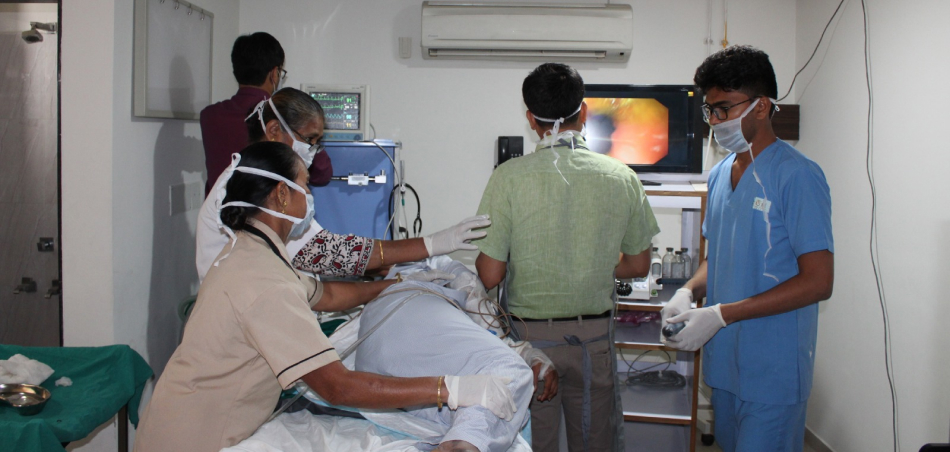-
Messagecare@cuhindia.com
-
LocationCentral United Hospital
- Appointment


Pulmonary function tests (PFTs) are non invasive tests that show how well the lungs are working. The tests measure lung volume, capacity, rates of flow, and gas exchange. This information help to diagnose and decide the treatment of certain lung disorders.
There are 2 types of disorders that cause problems with air moving in and out of the lungs:
Normal values for PFTs vary from person to person. The amount of air inhaled and exhaled in your test results are compared to the average for someone of the same age, height, sex, and race. Results are also compared to any of your previous test results. If you have abnormal PFT measurements or if your results have changed, you may need other tests.
There are many different reasons why pulmonary function tests (PFTs) may be done. They are sometimes done in healthy people as part of a routine physical. They are also routinely done in certain types of work environments to ensure employee health (such as graphite factories and coal mines). Or you may have PFTs if your healthcare provider needs help to diagnose you with a health problem such as:
PFTs may be used to check lung function before surgery or other procedures in patients who have lung or heart problems, who are smokers, or who have other health conditions. Another use of PFTs is to assess treatment for asthma, emphysema, and other chronic lung problems.
At CUH we have modern PFTs machine and trained PFT technician performing the test.